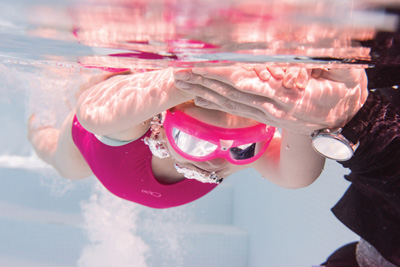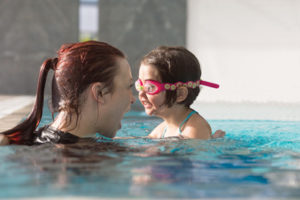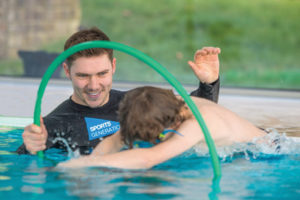
by Eri Coles
Sports Generation
The recent lockdowns have resulted in a significant decrease in physical activity levels among children. Sport England’s latest study shows that 31.3% of children and young people in England do less than an average 30 minutes a day of sport or physical activity. That is an increase of 2.4% from the previous year, bringing the total number of less active children to 2.3 million. There are countless activities children can get back to after lockdown, but we strongly believe swimming should take priority over other extra-curricular activities for every child. Read on to find out our reasons.
1. Swimming can save lives
Drowning is the third leading cause of unintentional injury death worldwide with the highest rates of drowning among children of one to four years, followed by children of five to nine years. Therefore, swimming is a life skill that everyone should acquire from a young age. Even before the pandemic, 23% of children were leaving primary school unable to swim 25 metres unaided and one in five cannot self-rescue, despite swimming being on the national curriculum. With regular swimming lessons, children learn how to stay safe in and around water – something you cannot learn by reading a book or watching YouTube!
2. Swimming helps to build a stronger body
Swimming is a perfect sport for improving overall health and fitness as you move most of your muscle groups against the resistance of water. Because it is full-body workout, it helps to tone muscles and build core strengths far more effectively than any other sports. Swimming increases heart rates without putting stress on the body, therefore it is also beneficial for building cardiovascular strength. In addition, swimming helps to expand lung capacity and improve breathing control which is valuable for everyone but especially for asthma sufferers. These are reasons why many children who swim regularly tend to be good at other sports as well.
 3. Swimming is a mood booster
3. Swimming is a mood booster
There is increasing concern about the impact of the COVID-19 pandemic on children and young people’s mental health. Data now conclusively indicates a substantial overall worsening of mental health in children and young people during the pandemic compared to previous years, according to the APPG’s latest report. Some children find it more difficult to express their emotions or share their thoughts verbally with others and therefore it is important to keep them active and provide enjoyment whilst doing so. So, how can swimming improve your child’s mental health? Swimming naturally reduces the stress hormones cortisol and adrenaline whilst simultaneously creating endorphins, the hormones that make you feel happy and increase positivity. The breathing patterns and rhythmic movements created with swimming can be meditative. Another study shows that swimming can reverse damage to the brain from stress through a process called hippocampal neurogenesis. We have seen time after time anxious or fidgety children leave swimming lessons calmer and more relaxed.
 4. Swimming can make your child smarter
4. Swimming can make your child smarter
Studies carried out by Fusion Lifestyle and Griffith University reveal regular swimmers are lengths ahead in school than non-swimmers. When it comes to classroom-based subjects such as maths, English and science, children who frequently take swimming lessons are more likely to perform above average:
• Children who have taken swimming lessons enjoy reading more and are more likely to read outside of school.
• Children can better recite their times tables, with 39% of swimmers able to recite their five times table vs only 28% of non-swimmers.
This is down to several factors:
• A child who swims after school has busy weeks, meaning they are disciplined with their time. It is natural they would apply this time-management to their studies.
• It develops focus in children, showing you must work hard and consistently to achieve your goals.
We all find it that little bit easier to work hard when we have something positive to look forward to – like swimming in a warm pool!
5. Swimming builds self-confidence
Swim England’s research has revealed that seven to 16-year-olds who swim rated a higher feeling of life being worthwhile compared to those who don’t. Swimmers are, on average, 2.5% more confident than non-swimmers. Girls who swim have considerably higher increases in wellbeing, health and self-confidence compared to boys.
As you can see, swimming is one of the best and most valuable activities out there for your children, and with this skill it would open doors
to other opportunities later in their lives. It is a true worthwhile investment for your children.
Sports Generation offer swimming lessons to children from age two years and above with up to two children per class to maximise learning potential. Lessons, taught by highly experienced coaches, are engaging, confidence building and results-based. If you want your child to get back into swimming, email contact@sportsgeneration.co.uk or call 0208 940 9431 to find out more.
References: Sports England: Active Lives Children and Young People Survey. Academic Year 2019/20, January 2021 World Health Organization: Drowning, April 2021 Swim England: Value of Swimming, 2019 All-Party Parliamentary Group: The covid generation: a mental health pandemic in the making. April 2021 PsychCentral: How Swimming Reduces Depression,2010 Griffith Institute for Educational Research, at Griffith University, 2013.











